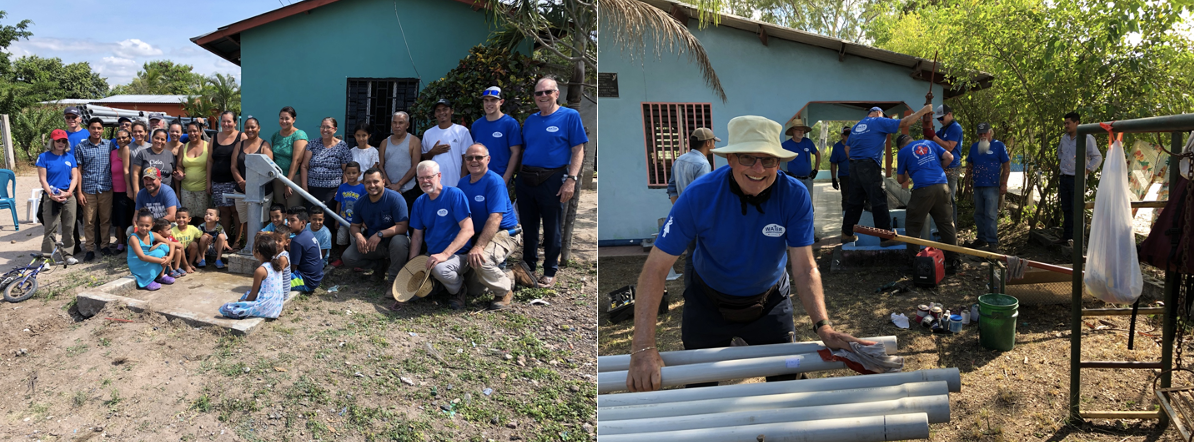-
by Riley Moynes
Everyone says you’ve got to get ready to retire financially. Of course you do…but what they don’t tell you is that you’ve also got to get ready psychologically!
Why is it so important to prepare psychologically? First, because 10,000 North Americans will retire today and every day for the next 10 to 15 years; it’s like a retirement tsunami!
And when they crash onto the beach, they’ll feel like fish out of water without a clue as to what to expect.
Second, it’s important because there’s a very good chance that you will live about a third of your life in retirement. So it’s critical that you have a “heads up” to the fact that there will be significant psychological changes and challenges that come with it.
I thought I had a pretty good idea what success looked like in a working career, but when it came to retirement, it was “fuzzier” for me. So I decided to dig deeper, and what I found was that most everything emphasized
financial and estate matters… important stuff for sure, but not what I was looking for.
So I interviewed dozens of retirees and asked the question, “What are the elements of a successful retirement?” Then I synthesized the information, looking for patterns.
And I discovered that there is a pattern or framework that can help make sense of it all…and that’s what I want to share with you.
Phase One is the vacation phase and that’s just what it’s like.…you wake up when you want, and do what you want all day. And the best part? There’s no set routine.
For most people, Phase One represents their view of an ideal retirement…relaxing, enjoying a fun holiday, Freedom 55.
Typically this Phase lasts about a year or two and then strangely, it begins to lose its luster.
We begin to find ourselves feeling a bit bored. We actually begin to miss our routine…something in us seems to need one. And we ask ourselves, “Is that all there is to retirement?”
When these thoughts and feelings start bubbling up, you know you’ve entered Phase Two.
Phase Two is when we feel loss and we feel lost.
It’s when we suffer five significant losses in retirement.
We lose:
- 1. Our structure and routine.
- 2. A sense of job-related identity.
- 3. Many of the relationships we developed on the job.
- 4. A sense of purpose many of us get from our jobs.
- 5. A sense of power that often comes with the job itself.
We don’t see these losses coming, and since we lose all five at the same time, it’s traumatic!
You see, before we achieve some of the positive results possible in Phases Three and Four, we are going to experience feelings of fear, anxiety and even depression. That’s just the way it is!
But luckily, at some point most of us say, “Hey, I can’t go on like this. I don’t want to spend a third of my life…perhaps 30 years…feeling this way.”
And when that happens, we’ve turned a corner into Phase Three.
Phase Three is a time of trial and error.
The critical question we ask ourselves in Phase Three is, “What can I do to make my life meaningful and productive again? How can I contribute?
The answer? Do things you enjoy and things you do well.
But understand this: It’ll often involve disappointment, failure and false starts.
I know this sounds bad…but we have to persist in exploring possibilities that’ll make us want to get up in the morning again, because if we don’t, there’s the real chance of slipping back into Phase Two, feeling like we’ve been hit by a bus …and that’s not a happy prospect.
Now, not everyone breaks through and reaches Phase Four, but those who do are some of the happiest people I have ever known.
Phase Four is when we reinvent and rewire.
The critical questions here are, “What’s my mission here, my purpose?” “How can I squeeze all the juice out of retirement?”
You see, we need to find activities we find meaningful, that give us a sense of purpose. And what I’ve found is that it almost always involves service to others.
Maybe it’s helping a charity we care about. Maybe it’s mentoring young people. Maybe it’s delivering Meals on Wheels.
Or maybe it’s doing what I did:
In November, 2019, I was part of a nine-person mission to Honduras sponsored by Water Ambassadors Canada (waterambassadorscanada.org). Our goal was to repair eight wells there, most of which had been broken and inoperative for years. During that week, we were fortunate to be able to repair seven of them thus providing clean water to 2260 people, and also offered hygiene training to 320 mothers and children in the villages we visited. It was exhausting, emotional work, but it was exhilarating!

That’s what’s possible in Phase Four!
So now you know the Four Phases of Retirement.
If you’re retired, you know which Phase you’re in.
If you’re not retired, I hope you have a better idea of what to expect when you do.
I just wish I knew then what you know now about The Four Phases of Retirement.
We know we should enjoy our vacation in Phase One. We know we need to adjust to the losses in Phase Two…and test some options in Phase Three.
But we need to keep our eyes on the prize! So let’s make it our goal to get to Phase Four.
Everyone says you’ve got to get ready financially. Of course you do… but you’ve also got to get ready psychologically.
[Dr. Riley Moynes is a ‘rewired’ (not retired) educator, author, financial advisor, TEDx speaker, and podcaster. He writes reader-friendly publications on topics of public interest. The Four Phases of Retirement is a Canadian best-seller. Visit thefourphases.com.]